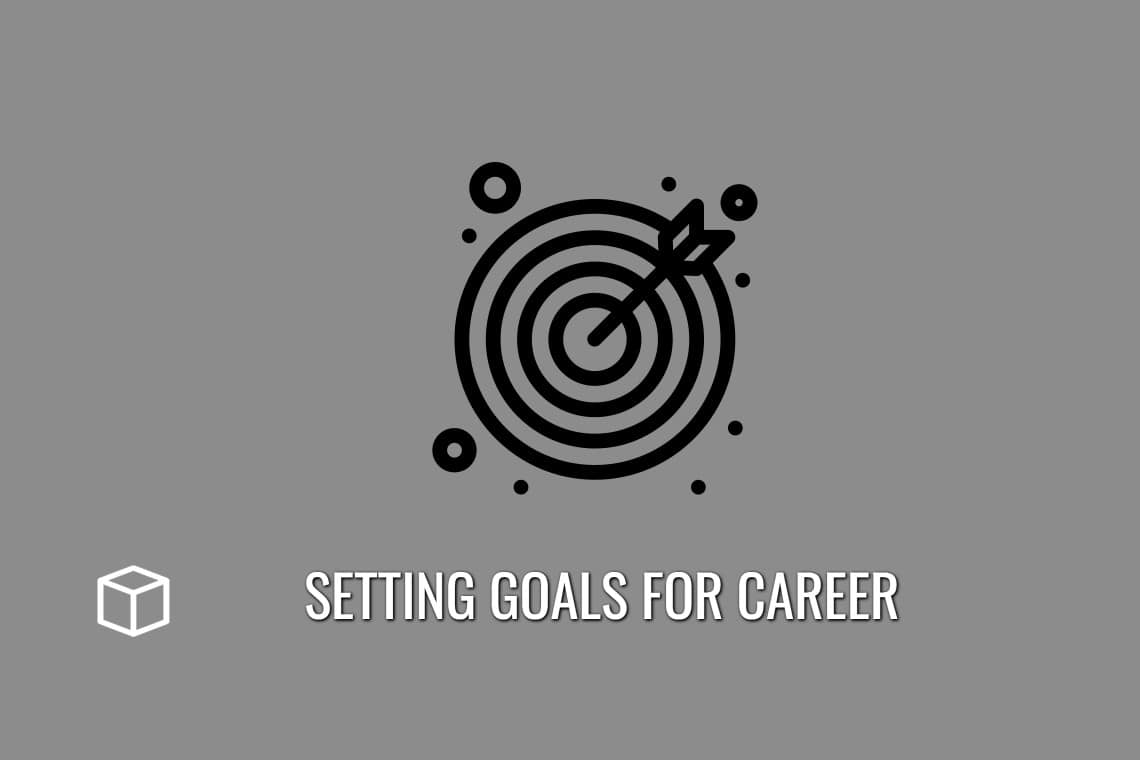Setting goals for career is important because setting goals helps people improve their career.
Career goals are also called professional development goals.
Some examples of setting career or professional development goals are setting a goal to start their own business, setting a goal to get promoted at work, setting a goal to learn how to play an instrument, setting a goal to become fluent in Spanish, setting a goal to get certified as an accountant, setting a goal to learn how to control their anger.
Setting Goals To Improve Your Career
Why setting goals is important
Setting career or professional development goals is important because it helps people push themselves harder than they would just staying at the same level of career performance.
For example, someone might start setting career goals for themselves if they feel like they are not getting promoted quickly enough in their company.
If they don’t set career goals for themselves, there is a good chance that they may not get promoted at all or if they do get promoted it will be several years later.
However setting career goals helps the person push themselves harder to reach the professional development goal of getting promoted.
Reaching this goal gives an employee a sense of accomplishment and a feeling of self-worth. This will make them feel confident in setting even higher goals for their career in the future.
Setting career goals also helps people predict if they are going to have a successful career or not.
For example, setting a goal to become an accountant is setting a goal that requires someone to pass an exam to get a license which means that they have to learn a lot of information about accounting.
If the goal setting person doesn’t know much about accounting before setting this career goal, it might mean that their chances of becoming successful as an accountant are low because they may not dedicate enough time and effort into learning about accounting in order to pass the exam.
Setting career goals also sets the path for career success.
Career success is usually determined by setting career or professional development goals and making reasonable plans to achieve those goals.
For example, setting a goal to become certified as an accountant will help prepare them for the exam that they have to take in order to get their certification.
They could have even started setting career goals to become an accountant earlier by setting a goal to get their bachelor’s degree in business management or accounting.
If they didn’t set this goal, it might mean that they would have had to take longer than two years studying for the exam because they wouldn’t have had the courses necessary for passing the exam.
Setting career goals is not just setting a goal and setting it for one month or setting it and forgetting about it.
Instead, setting career goals requires setting the goal, doing research on how to meet this goal, planning out how they will meet this goal, setting milestones so that they can track their progress in reaching the goal, and staying determined while working towards reaching the professional development goal.
One common mistake people make when setting career goals is setting an unrealistic goal because they are not able to see how difficult it will be or how much work it will take in order to achieve the goal that they have set for themselves.
An example of setting an unrealistic career goal would be setting a goal to get hired as the CEO of a company when they have never even been a manager before.
What are short-term goals?
Short-term goals are the goals that people set in order to achieve higher, more difficult goals.
They generally last around 6 months or less. Short-term goals are necessary because they motivate people to stay motivated and help with setting long-term goals since they require setting both short-term and long-term career goal setting.
For example, setting a short-term goal of setting 10 sales calls per day for 30 days would help motivate someone to set a career goal of getting promoted or becoming certified as an accountant.
What are long-term goals?
Setting long-term goals is different than setting short-term goals. Long-term goals are the ones that people want to work on for a year or more, whereas setting short-term goals are just setting up intermediate steps along the way to these long term career goals.
For example, setting a goal of becoming certified as an accountant might require setting a number of different short-term and long-term career goal setting milestones.
Other Articles
- What is Penetration Testing
- Highest Paying Software Jobs
- What is Project Management
- What is Software Development
- What is Technical Writing and why it is used
- How to Take Notes
- How to Give a Good Presentation
- What Is Emotional Intelligence
- What is Nonverbal Communication
- How to Develop Your Skill Set to Advance Your Career




